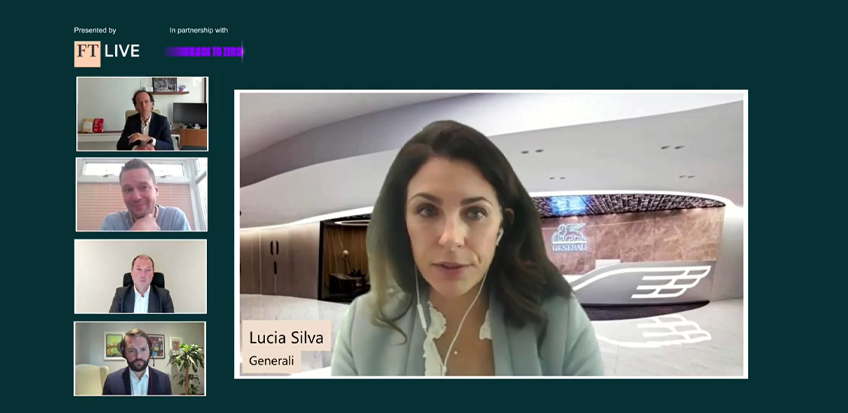Lucia Silva intervenes at ‘FT Climate Capital: The Future of Climate Finance’
Generali Group Head of Sustainability & Social Responsibility discussed the key role financial institutions can play in the just transition and Generali’s commitment to a low climate impact future
“To fight the climate crisis, we must accelerate the sustainable transformation of our economies, always considering the impact of our decisions on workers and communities, making sure we do not leave anyone behind”, Generali Group Head of Sustainability & Social Responsibility, Lucia Silva, told panellists at the FT Climate Capital: The Future of Climate Finance.
The event, part of the ‘FT Climate Capital: Race to Net-Zero’ series, took place on 12th October in the presence of world-class business leaders and speakers from major international companies and institutions, exploring the ever-expanding world of climate finance and dissecting the challenges and opportunities that come with transitioning to a greener path of climate protection investment.
The Group Head of Sustainability & Social Responsibility spoke during a roundtable discussion on the financiers role in net zero, underlining Generali’s commitment and actions to take a central role in driving the transition to low-carbon economies and net-zero industries, both from an investment and risk-management perspective.
The discussion also focused on the biggest challenges and changes on the road to net-zero, with Lucia Silva pointing to the emergency we are facing today – considering the major environmental incidents which have caused loss of life and significant financial damage across the world - and, on the other hand, the increased awareness that has emerged and that is key to accelerate on policy action plans for climate neutrality.
Further, Lucia Silva touched on the role and responsibility of central banks and monetary policy actions in achieving net-zero and highlighted the importance of the Solvency II Directive – which is currently under review – to free up capital and direct it towards projects in line with the EU Commission’s political agenda such as the Green Deal, Capital Markets Union and more generally long-term investments that can support a just transition and a sustainable economic recovery.

